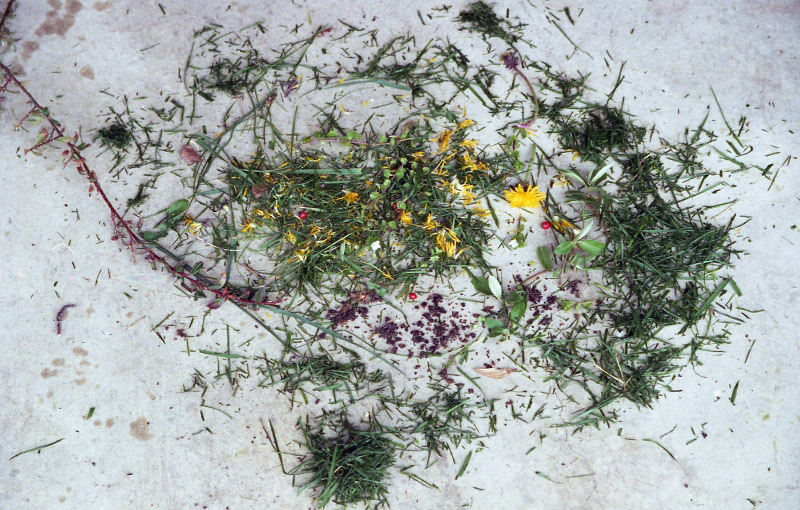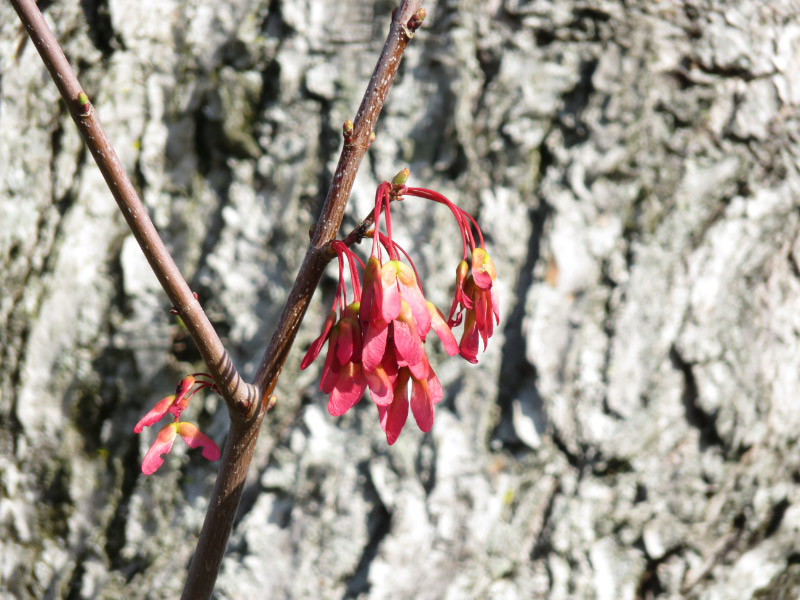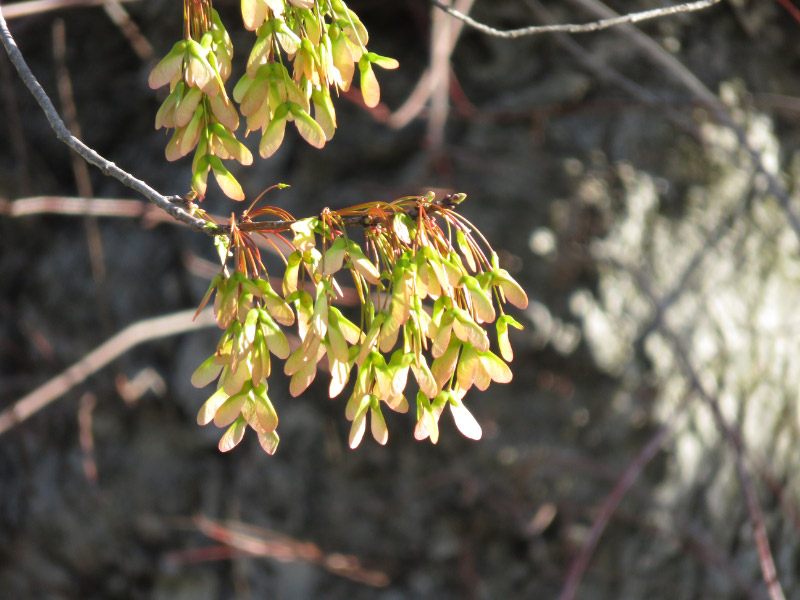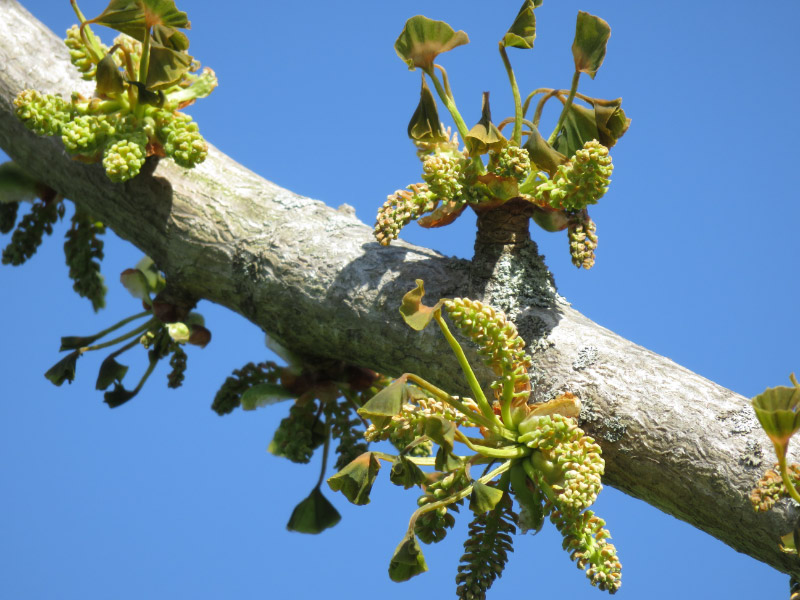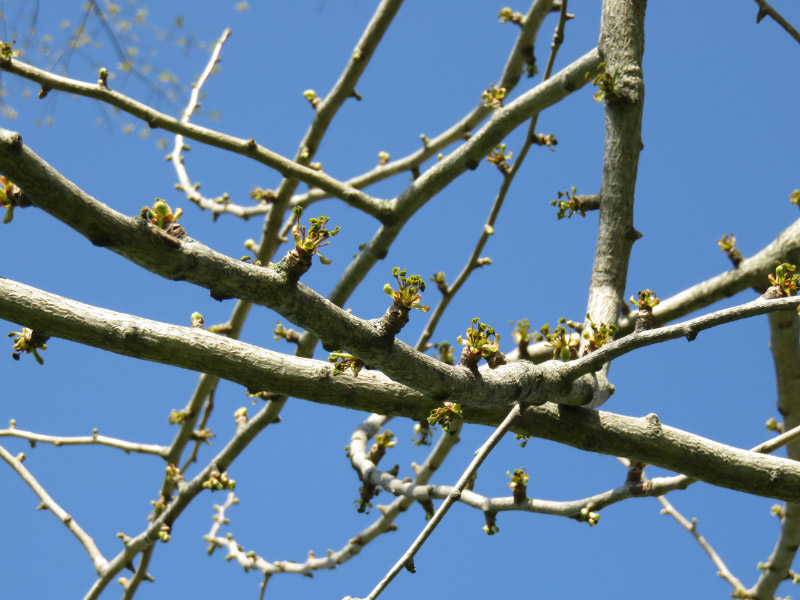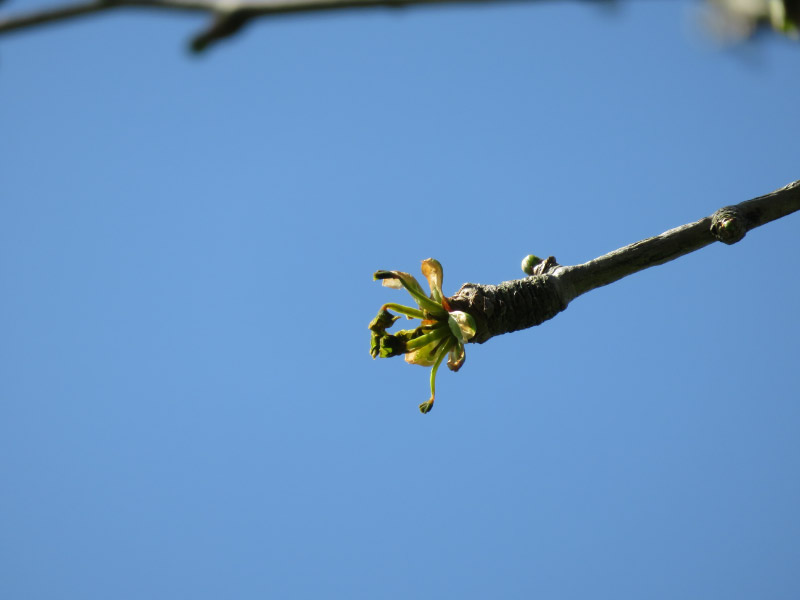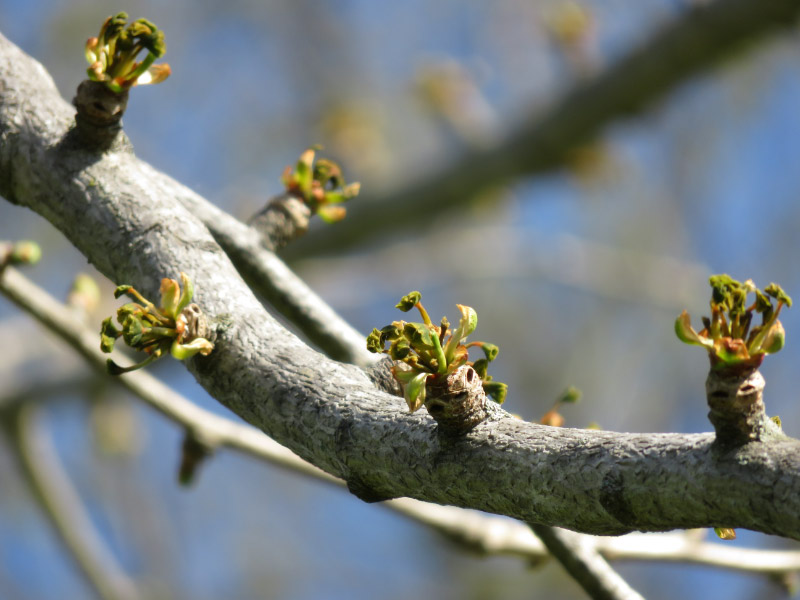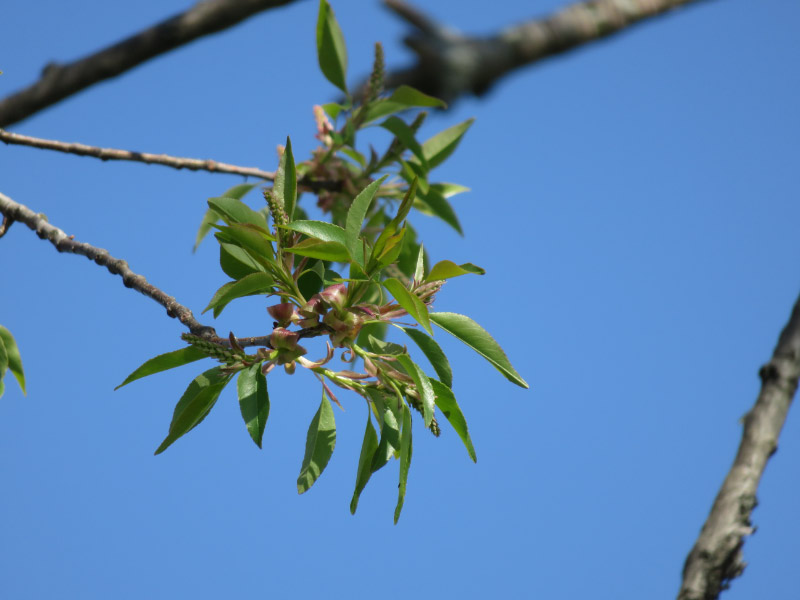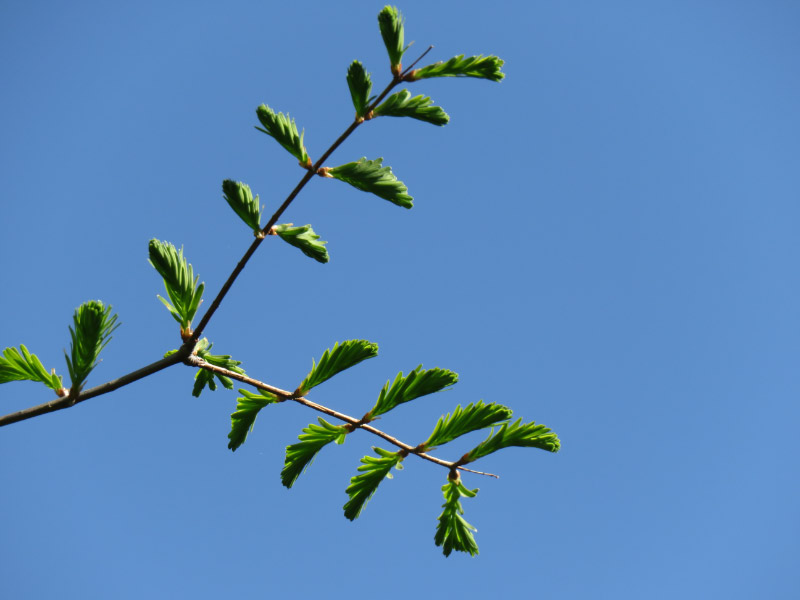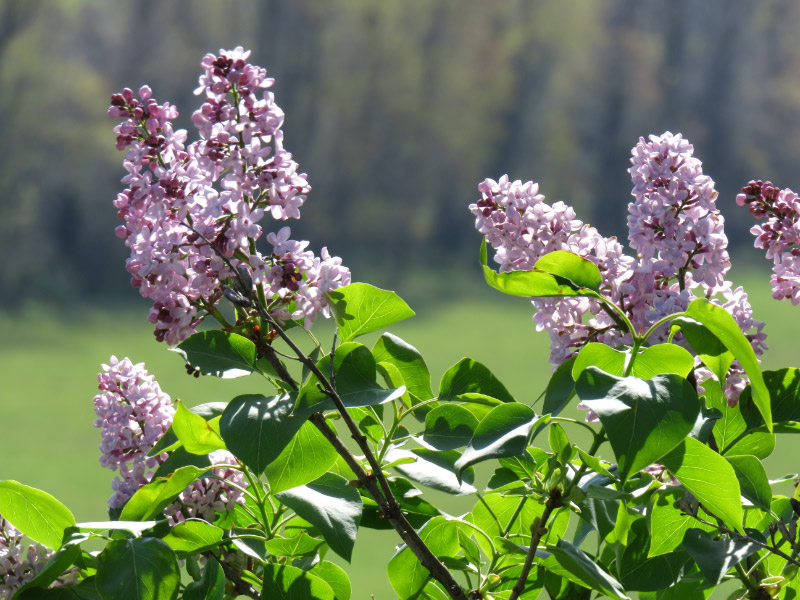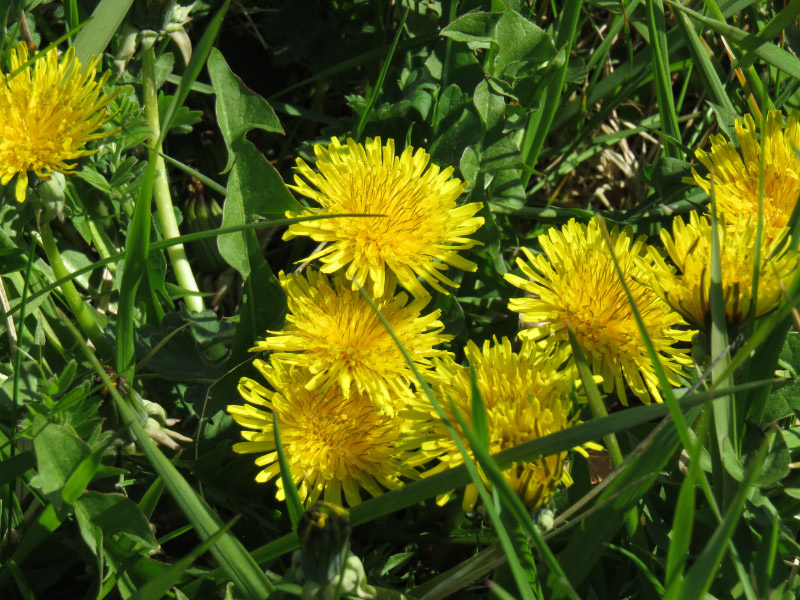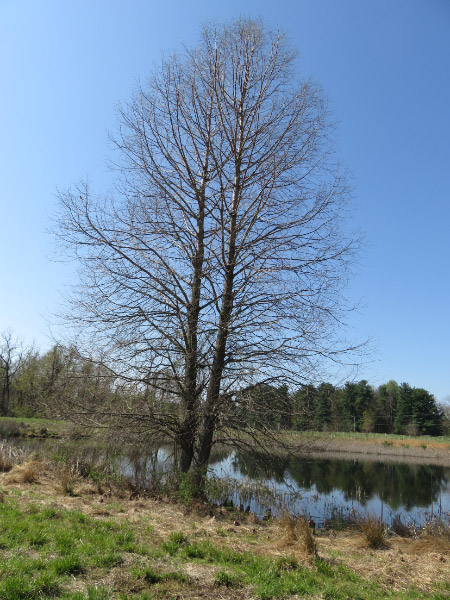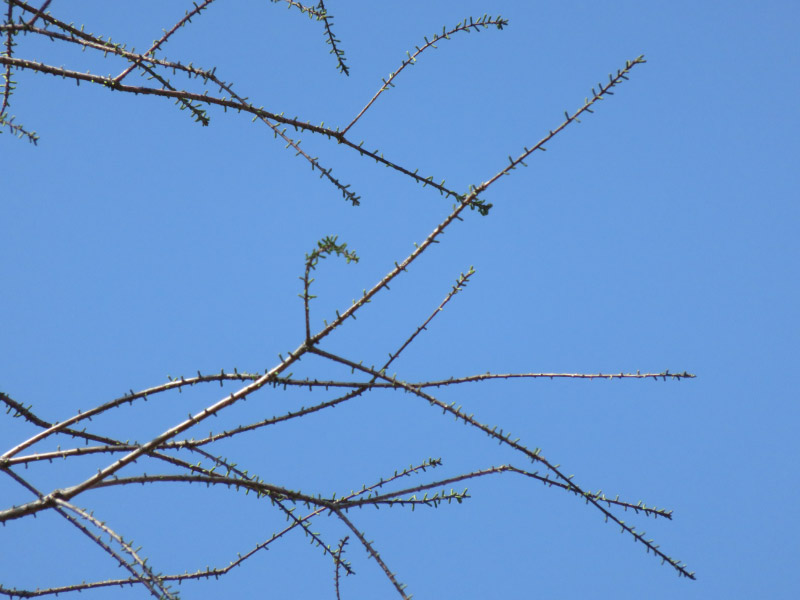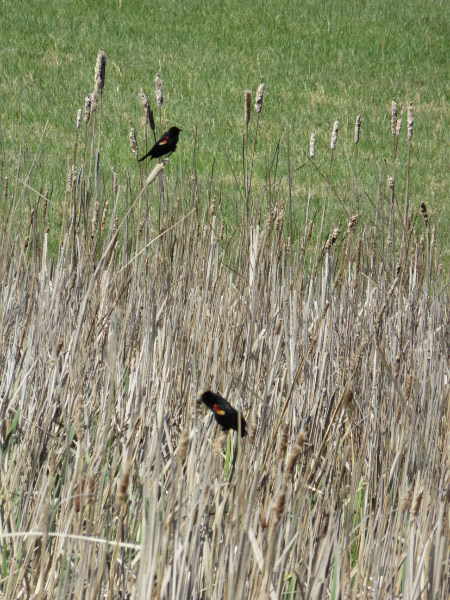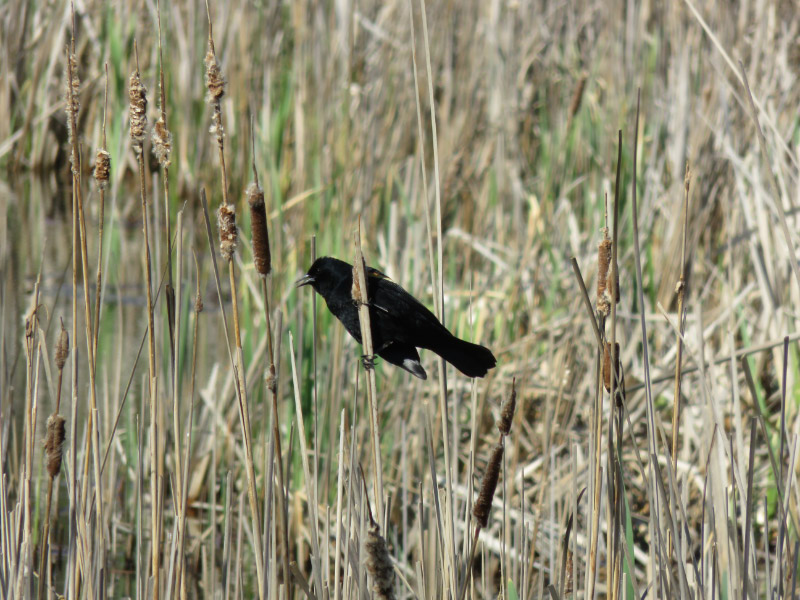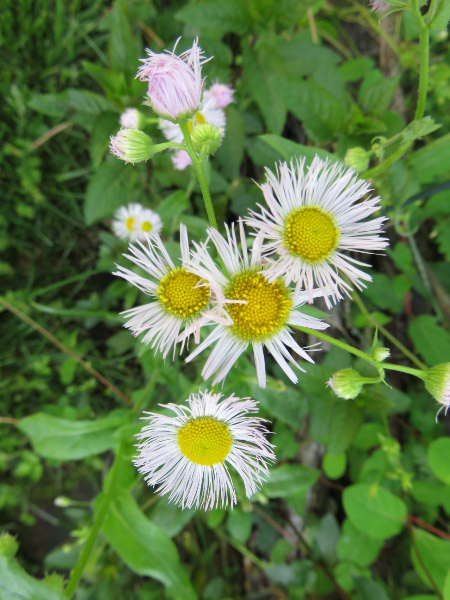 After checking the front flower beds, I walked around to check out the backyard. The chaos garden needs weeding; the honey suckle is beginning to take over (again). I’ll put it out but leave the fleabane. It’s a weed, but I tolerate it because the small flowers last a long time and add some additional color next to the chives, lemon balm, and mint that I want in the garden.
After checking the front flower beds, I walked around to check out the backyard. The chaos garden needs weeding; the honey suckle is beginning to take over (again). I’ll put it out but leave the fleabane. It’s a weed, but I tolerate it because the small flowers last a long time and add some additional color next to the chives, lemon balm, and mint that I want in the garden.
The Christmas ferns I planted last year survived the winter and may be reproducing! The new fronds are splattered with dirt because the run off from the deck is so violent during heavy rains. If the stand of ferns grows, the muddy area under the deck could reduce the mud and provide some nice greenery that would not need mowing. I’m keeping my fingers crossed. The violets are also doing well under the deck since they thrive in shade.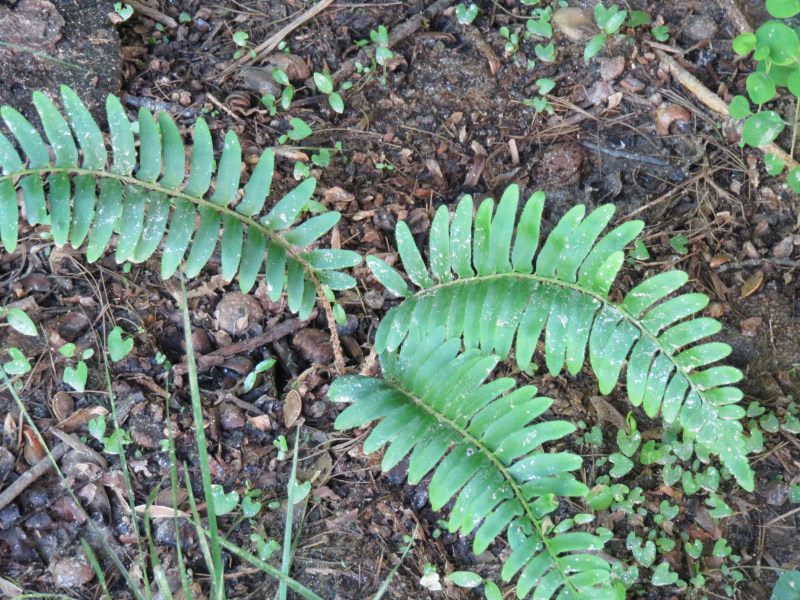
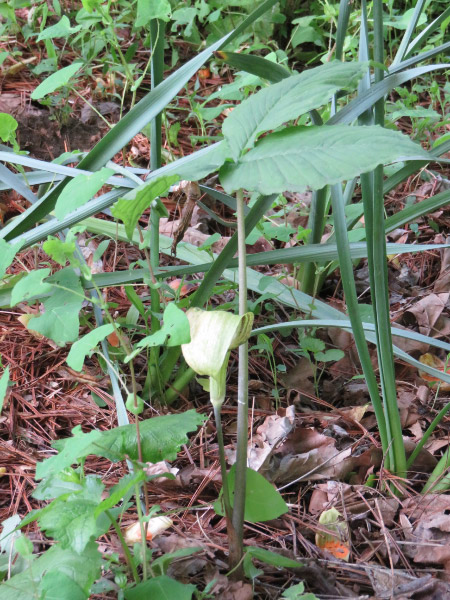 There was a jack-in-the-pulpit with a drying out bloom in the boundary area between our yard and the forest. I’d put a lot of leaves into the area last fall and was glad to see this forest plant in bloom. I watch to see if it produces the red seeds.
There was a jack-in-the-pulpit with a drying out bloom in the boundary area between our yard and the forest. I’d put a lot of leaves into the area last fall and was glad to see this forest plant in bloom. I watch to see if it produces the red seeds.
The black walnut is the trey I am trying to watch this spring. The end of each branch sprouts a crown of new growth (stems and leaves) which I always think of as a ‘bad hair’ configuration. The tree is young enough that I only saw one nut on it last year. Maybe there will be more this year – but I imagine they will be well above the deer browse line.
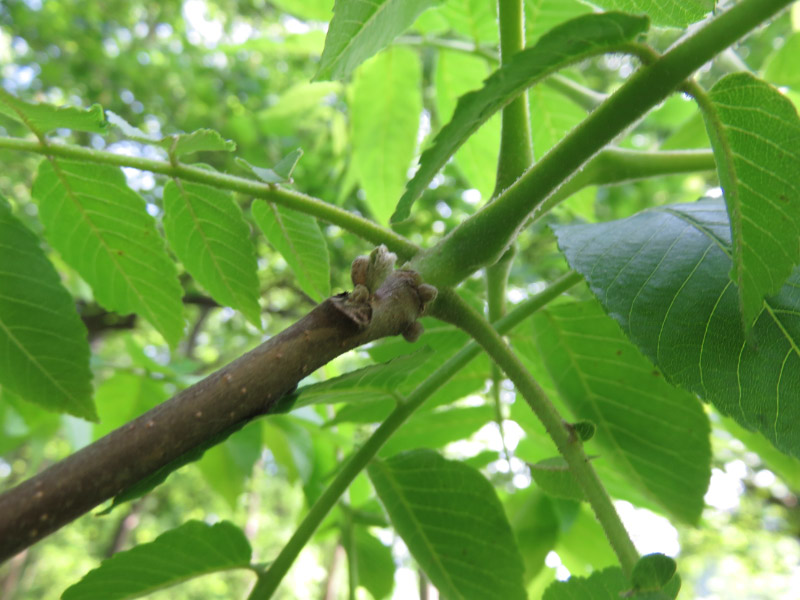
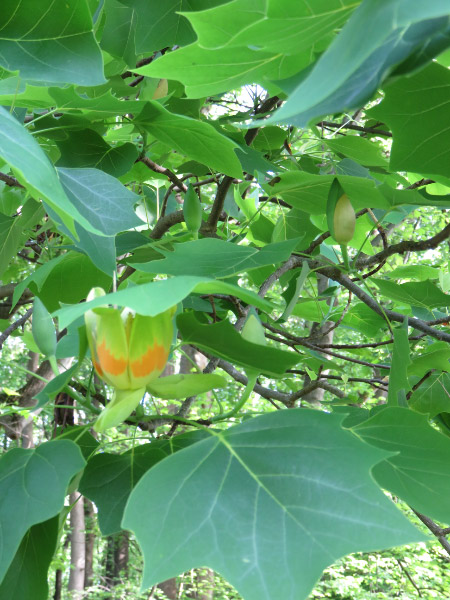 The tulip poplar is full of flowers and buds. These trees are the most common large trees in the forest behind our house.
The tulip poplar is full of flowers and buds. These trees are the most common large trees in the forest behind our house.
As I went up the stairs to our deck, I saw a crane fly – still. I left it there after taking photographs from several angles.
The old turtle sandbox on our deck has several dandelion plants that I’ve been harvesting when I need greens for a salad….and there is quite a lot of mint coming up as well.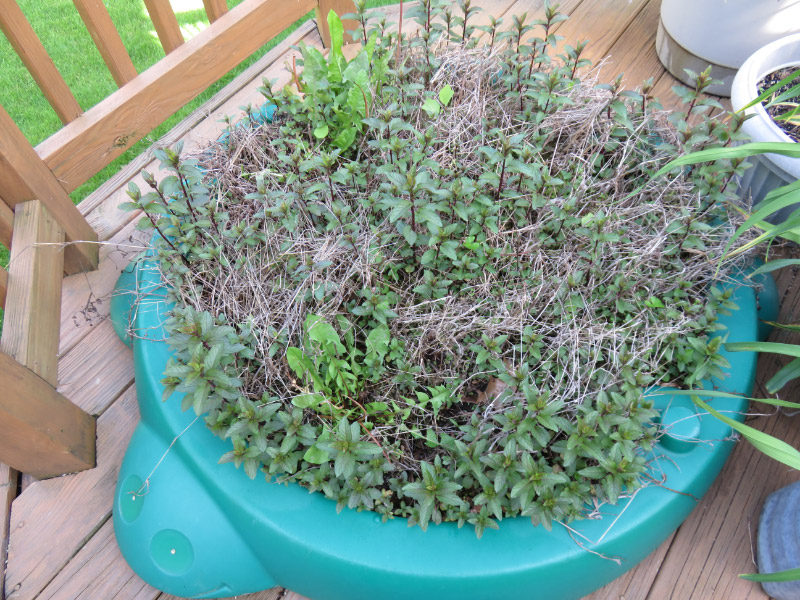
Overall, the backyard is in pretty good shape. The main weeding work is in the chaos garden. The challenge on the deck it to make sure all the pots are draining adequately and that the bird bath water is changed frequently enough to avoid breeding mosquitos.
